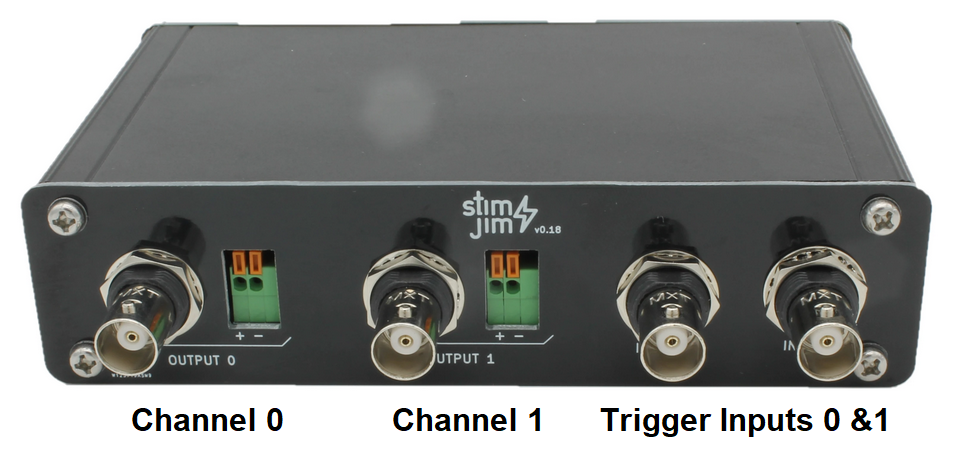|
The StimJim_Isolator is a Windows program
that controls
the StimJim stimulator to act like an intellegent stimulus isolator. One input
pulse from a data acquisition system triggers one isolated
mono, bi or triphasic current or voltage pulse from the StimJim.
The 'intellegence' is because the pulse
amplitudes can be automatically incremented by clicking one
button (figure below).
The StimJim_Isolator program is free
and, like the StimJim, open source.
The 2 channel
StimJim was
designed by Nate Cermak and Jon Neuman of the Open Ephys group,
manufactured by
LabMaker, and sold for $645 USD. The documentation for the StimJim is in the
bioRxiv paper (Cermak N, Wilson MA, Schiller J and Newman
JP (2019) Stimjim: open source hardware for precise
electrical stimulation. bioRxiv, doi:
https://doi.org/10.1101/757716).
Its my understanding that the StimJim from LabMaker is currently
out of stock, but that an updated version
should be in stock fairly soon. Check with
LabMaker.
| I
have found only one major limitation with the StimJim – the low
compliance voltage of about
+13.7
volts.
So a 100 Kohm stimulating
electrode can only output a pulse with a maximum of 137 uA.
This means that, in general,
the StimJim cannot use the higher resistance metal electrodes
like the Haer 30203, but only low and medium resistance
electrodes such as the: |
|
1. |
Haer
30202 and 30213 (Bipolar
Concentric, 25um Cone Tip, Platinum/Iridium) Electrodes |
| 2. |
50um
Platinum/Iridium Bipolar Twisted Wire Electrodes |
| And
with medium resistance electrodes, we found that the StimJim
could reliably output 200-300 uA's. |
| |
| It’s
important to realize that the StimJim / StimJim_Isolator is one
of the few stimulus isolators that can measure the
maximum passible current and
electrode resistance during the stimulation pulse when the
electrode is in the tissue as well as in the saline.
Using these measurements, we found that: |
|
1. |
with substantial
stimulation, the resistance of new electrodes could
about double even with biphasic pulses. |
| 2. |
when the stimulating
electrode in the saline was pushed into the slice the
the resistance could sometimes double or even quadruple
(like going from 16 to 69 Kohms). |
|



